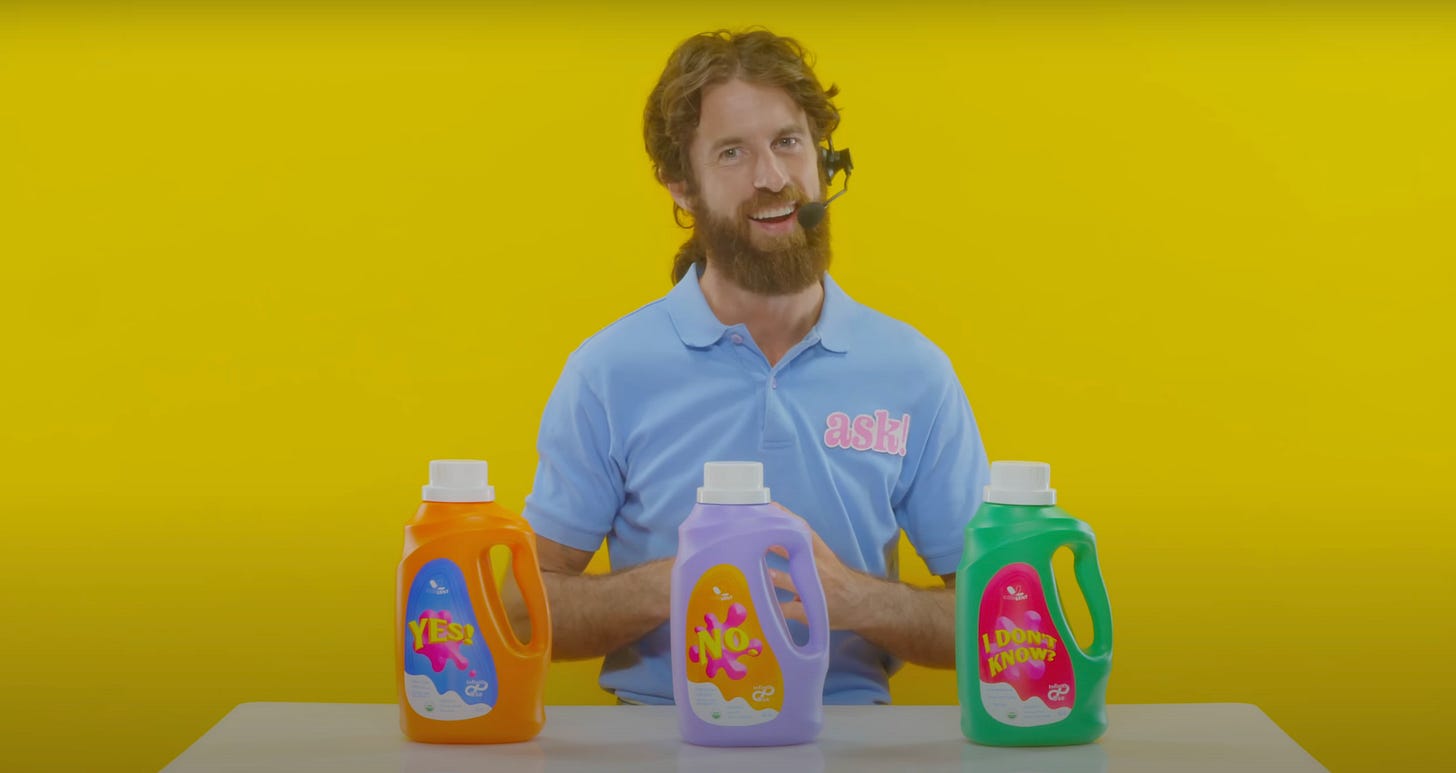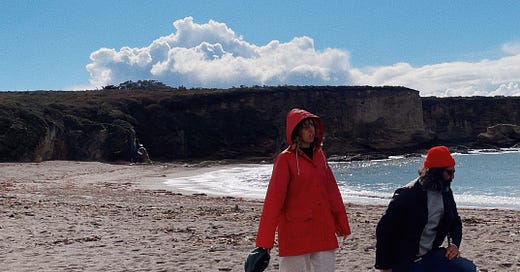Consent is Not Linear
Revisiting my sex life, the objectification of relationships, and our beautiful, mutable, undependability.
T. and I spent the weekend in Big Sur, tripping LSD under a canopy of trees while our friends enjoyed live music that played late into the night. We used our time wisely and talked for hours, mostly about our sex life.
I’ve always felt that checking in and communicating about sex with a partner is a practice worth keeping up, no matter how long I’ve been with somebody — perhaps precisely because of how long I’ve been with somebody.
T. asked how I felt about our sexual dynamic — not in general, but right now at this very moment in our relationship. I spoke candidly about being a woman and the domination I feel when I experience penetrative sex with men. I brought up the seemingly inevitable hierarchy and objectification created by it. Sometimes I really like it. Sometimes I don’t.
Our conversation was deep, messy, and illuminating — all of which is for another letter. This letter is about how at some point, the conversation shifted gears from the dom/sub and daddy talk because I started thinking about the ways we objectify all of our relationships, friendships included, by treating them as fixed entities.
Likely a byproduct of our culture, our relationships become transactional without our even realizing it. When we buy something, we use our money to gain a material possession, and from thereon out, that possession is ours to do whatever we please with. We don’t revisit the object later and ask if it still wants to belongs to us, if it wants something new, if it needs change. We assume it is rightfully ours, perhaps due to the time we had to put in to earn it. The subject is dropped.
Similarly, I wonder if our attitudes towards our friendships and relationships can take on this unquestioning nature too. Who benefits from the assumptions we make about each other and the patterns we fall into as a result?
We get comfortable in our relationships. It seems like once the passing of time has invited enough relief or routine into a relationship, we take for granted the ever-changing individual in front of us and what it looks like to honor their mutability. It makes sense — it’s safe under the umbrella of expectations and presumptions we create. It’s nice to assume that this one, specific thing isn’t changing, while the rest of the world most certainly is.
Sometimes we know something in a relationship needs to change, or it has begun to change already, but we shrink away from acknowledging it because we’re afraid of the consequences. If I want to change something my partner and I have grown accustomed to, something my partner really likes — something even I have enjoyed up until recently — what will the repercussions be if I bring it up? Will my partner be disappointed?
If I remove something from our equation, will they look for it somewhere else? If I ask for something more, will they understand or reject me? Am I allowed to change my mind about all of it later, and will they understand that too? Better to just leave it how it is and not make waves, I’ve often though to myself.
The thing is, nothing is ever left how it was. Everything is always changing, whether we accept it or not. We are waves — we embody the same volatile contradictions as the ocean: tempestuous, moody, but also inviting, healing, even predictable. And yes — our depths are literally unknowable, too.
My friendship with Hannah (aka Bob) is a perfect example of taking a relationship approach for granted. We’ve been friends for over a decade, and for the majority of that time, we’ve lived hours, if not entire countries apart from one another. Up until this year, our friendship mostly consisted of a daily habit of texting each other literally everything, sometimes all day long. It was different than normal texting because it had a “live” quality to it, much like being on AIM or Instant Messenger used to feel, which is, not surprisingly, what Bob and I were raised on.
It took ten years and a big, giant elephant of bubbling tension in the room, for us to reevaluate our M.O. Do I still have your consent to text you my every waking high and low, as I have done for years?
Actually, no.
Bob and I decided, for both of our sakes, that it was time to set up some boundaries and log off of our live-stream. Limited face-to-face contact, combined with the “this person is constantly accessible to me” mindset that my phone had tricked me into, meant that I was talking at Bob way more than was necessary for the depth of our friendship. In fact, I’m not even sure we were getting very deep because: text messages. It also meant that I was making assumptions about Hannah’s capacity, interest, and general place in life. Assumptions, I learned, are a surefire way to cross somebody’s boundaries.
At first, I was ashamed and embarrassed. Oh God, have I become my mother? Do I project and vomit whenever I please, without consent from and regard for the inner experience of the person on the other end? Maybe a little, yes.
It was just so easy to text Hannah — to have her in my pocket during lockdown, on multiple cross-country drives in pursuit of love, or while being born again during a bout of illness in Mexico. But as individuals, we had grown up from the women we were when we first met, two girls bumbling around San Francisco on bicycles with an unprecedented ability to stay up late. Our needs and desires had changed, and now there was over a decade of data behind us to help us understand where we’d come from, where we were now, and where we wanted to go.
When Hannah and I revisited the way we’ve always done things, it prompted me to think about how I had objectified our friendship. It seems that even with the best intentions, it’s easy to think of our relationships with other people as amorphous, blob-like containers — as things that we have, as objects, as possessions.
We lose sight of the fact that the relationship is nothing without the other person — a person that frankly, has nothing to do with us, and as I mentioned before, is the essence of change.
And so if Hannah is the essence of change, and I am the essence of change, then it makes sense that the way we relate to one another will change too. I realized that if anything, relationships are change.

Consent is something I think about a lot, and not just because my friend Danthony wrote a brilliant song about it, the video for which I’m including at the end of this post. Perhaps consent is important to me because as a child, my own boundaries were often assumed and ignored by the people closest to me. My experience is not unique. It is my observation that even the safest and “most aware” adults still find it difficult to respect the agency and humanity of children.
In any case, my experience with unsafe adults turned me into a hyper-vigilant adult. Sometimes it feels like everywhere I look, I see people, myself included, making assumptions about how to relate to others, instead of doing the nitty-gritty yet simple act of checking in and asking. What would it look like if everybody was treated like the shapeshifting, mystifying, and impossible individual they are?
Addressing the things that no longer felt good in my oldest friendship highlighted the fact that consent is not linear. Consent is not unconditional, either. I understand it better now, and I apply this knowledge to others. With grace, I also apply it to myself.
I’ve taken great care in my relationship with T. to remind him that I don’t think consent is something that molds into a final, fixed state. I’ve explained that I don’t like it when assumptions are made about me, my capacity, or my preferences. I like to be checked in on.
Keep reading with a 7-day free trial
Subscribe to Unsupervised to keep reading this post and get 7 days of free access to the full post archives.






